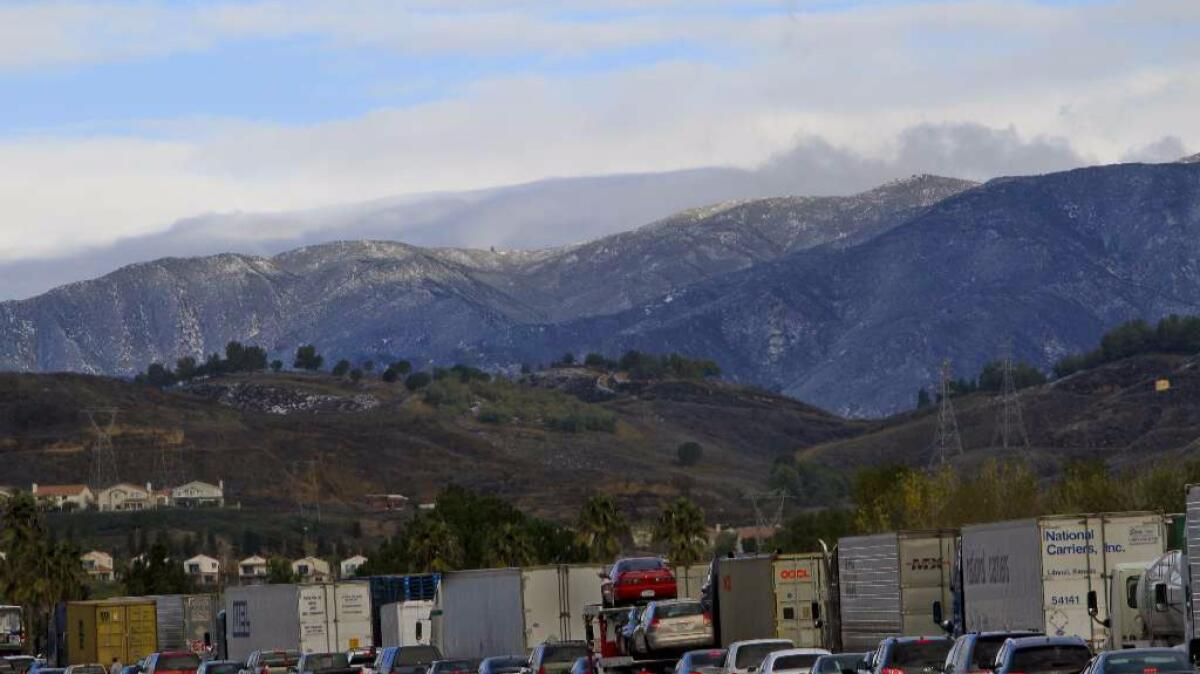California must set aside delays to truck pollution standards, judge rules

- Share via
California air quality regulators failed to consider the environmental and business consequences of giving some heavy-duty truck operators more time to comply with tough diesel pollution rules and must set aside the delays, a Fresno County judge has ruled.
The decision Tuesday by Fresno County Superior Court Judge Mark W. Snauffer is a victory for a contingent of trucking businesses that had complained that the California Air Resources Board created an uneven playing field by postponing deadlines for smaller firms to upgrade to cleaner engines or install better pollution controls.
The California Trucking Assn. and Fresno-based trucking company John R. Lawson Rock and Oil Inc. sued the state air board over its April 2014 vote to delay emissions rules that many larger operators had already met.
Snauffer wrote that the air quality board did not undertake “even a cursory analysis” of the financial hardship on trucking firms that already paid to comply with the new pollution standards and could be undercut by smaller, higher-polluting competitors that had failed to meet them.
In a written statement Thursday, the Air Resources Board defended the relaxation, saying it provided “badly needed flexibility to smaller fleets (three trucks or less), lower-use vehicles including those operated by small farmers, and fleets in some rural areas.”
The board said it will immediately file an appeal, “which will maintain the status quo while the case makes its way through the higher courts.”
The board in 2008 adopted the nation’s toughest diesel emissions regulations aimed at phasing out older, dirty trucks and reducing health risks from soot and smog. The board relaxed the rules in 2010 and again in 2014.
Those latest changes divided the trucking industry. While some small trucking firms pleaded for more time, they were opposed by operators of larger fleets that had paid to upgrade to cleaner engines and complained that their businesses would be put at a competitive disadvantage.
Shawn Yadon, chief executive of the California Trucking Assn., said the air board “was basically picking winners and losers -- and the losers ended up being the operators and carriers who stepped up to comply with the rules at great cost.”
Environmental groups and residents near freeways, ports and other heavy traffic corridors also argued against the delays.
Heavy-duty trucks are among the largest sources of air pollution, emitting diesel exhaust linked to cardiovascular disease, cancer and asthma. Steep pollution reductions from the trucking industry are central to California’s efforts to meet a series of upcoming deadlines to curb smog and greenhouse gas emissions.
More to Read
Sign up for Essential California
The most important California stories and recommendations in your inbox every morning.
You may occasionally receive promotional content from the Los Angeles Times.











